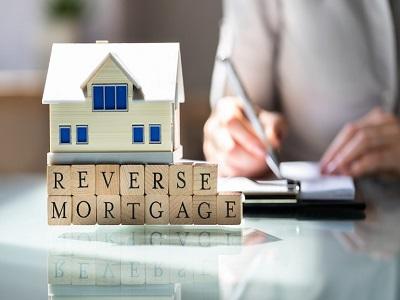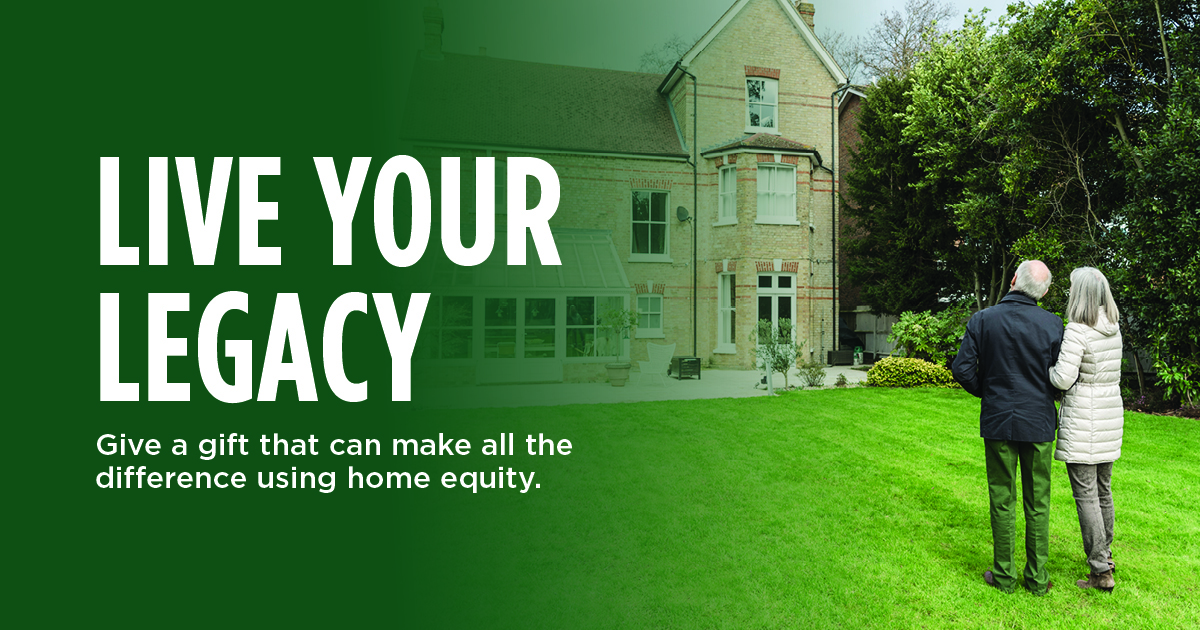Reverse Mortgage
A Guide for Homeowners 55 and Older* by Rami Dalal
If you’re a homeowner over the age of 55, you might be looking for ways to make the most of your home’s equity in retirement. One option you may have heard of is a reverse mortgage. But what exactly is a reverse mortgage, and how can it benefit you?
What Is a Reverse Mortgage?
In simple terms, a reverse mortgage is a loan that allows homeowners 55* or older to convert their home’s equity into tax-free cash. This money can be used for virtually anything, from paying off an existing mortgage and credit card debt to covering medical bills or enhancing your lifestyle during retirement.

The most common type of reverse mortgage is the Home Equity Conversion Mortgage (HECM), which is insured and regulated by the Federal Housing Administration (FHA). The FHA provides protections for borrowers, such as mandatory counseling and a guarantee that you’ll never owe more than the home’s value when the loan comes due.
One of the key differences between a reverse mortgage and a traditional mortgage is that reverse mortgages offer flexible payment options. You don’t have to make regular payments on the loan (though you’re still required to pay property taxes, insurance, and maintain the property).
Common Misconceptions About Reverse Mortgages
A popular myth about reverse mortgages is that having one means the lender takes ownership of your home. That’s simply not true. You retain ownership of the property throughout the life of the loan. Only when the loan is due (after you leave the home or pass away) will the home be sold to repay the loan.

How Does a Reverse Mortgage Work?
A reverse mortgage works differently from traditional mortgages. Instead of making monthly payments to the bank, the bank makes payments to you if you choose to structure your loan this way. The funds can be disbursed in a variety of ways, such as through lump sums, monthly payments, or a line of credit.
As the homeowner, you still retain the title to your home. The lender does not own your home, and you will not have to move out unless you decide to, or in the event of certain conditions like the passing of the borrower.
Your Options for Repayment
There are a few different ways to repay the loan when it becomes due, and your choice depends on your preferences and financial situation.
Option 1: Repay with a Lump Sum
You can sell the home or refinance the balance when the last borrower leaves the home. Once the loan is repaid, any remaining equity is yours to keep.
Option 2: Make Regular Repayments
Alternatively, you can make monthly, quarterly, or annual payments to preserve the home’s equity or increase your available line of credit. You have the flexibility to start, stop, or adjust payments as your financial needs change.
Common Misconceptions About Reverse Mortgages
A popular myth about reverse mortgages is that having one means the lender takes ownership of your home. That’s simply not true. You retain ownership of the property throughout the life of the loan. Only when the loan is due (after you leave the home or pass away) will the home be sold to repay the loan.

Top Reasons to Consider a Reverse Mortgage
- Eliminate Monthly Mortgage Payment
One of the main reasons people opt for a reverse mortgage is to eliminate the burden of monthly mortgage payments. This can free up cash flow for other needs. - Stay in Your Home
As long as you maintain your property and pay property taxes, insurance, and HOA fees, you can stay in your home for as long as you wish. - Access Extra, Tax-Free Cash
The money you receive from a reverse mortgage is tax-free. You can use the funds however you like—whether it’s for paying off debt, making home repairs, or supplementing your retirement income. - Strategic Retirement Tool
A lot of savvy consumers are now using Reverse Mortgages as a strategic retirement tool, as a sort of self-funded insurance. By “paying themselves” into the line of credit, the funds are there for surprise expenses (e.g., new furnace, car) or for a vacation or family gift.
Benefits of a Reverse Mortgage
- No Monthly Mortgage Payments
You no longer have to worry about making monthly mortgage payments, which can be a huge relief during retirement. - Stay in Your Home
You retain ownership of your home as long as you follow the loan requirements. - Tax-Free Cash
The funds you receive from the reverse mortgage are tax-free. - Non-Recourse Loan
You will never owe more than the value of your home when the loan comes due. - Flexibility
You have the freedom to use the funds however you see fit—whether for medical bills, home improvements, or just to improve your lifestyle. - Grows Equity Over Time
If you make regular payments during the loan, you can increase your home’s equity and pay down the loan balance.
Consumer Protections and Safeguards
When considering a reverse mortgage, it’s important to understand your rights and responsibilities. Here are some key protections in place for your peace of mind:
- Counseling Requirement
All HECM reverse mortgage applicants must undergo third-party counseling to ensure they fully understand the terms and options available to them. - No Pre-Payment Penalty
You can repay the loan at any time without incurring extra charges. - Non-Recourse Loan
If the loan balance exceeds the home’s value when it comes due, you won’t be held responsible for the difference.

What Happens After You Pass Away?
If you pass away, your heirs will have some options. They can sell the home to repay the loan and receive any remaining equity, or they can choose to purchase the home through refinancing or other assets.
In any case, as long as the loan is repaid in full, your family won’t lose the home.
Common Questions About Reverse Mortgages
Does the bank own my home?
No. With a reverse mortgage, you retain ownership of your home. The bank or lender does not own your property.
How much can I borrow?
The amount you can borrow depends on factors like your age, the home’s value, and the type of reverse mortgage. Contact Rami Dalal, a reverse mortgage specialist, to get an estimate.
What if I still have a mortgage?
A reverse mortgage can pay off your existing mortgage. Many homeowners use reverse mortgages to eliminate their monthly mortgage payments.
Will my children lose their inheritance?
Not necessarily. Your heirs can sell the home to repay the loan, or they can keep it by purchasing it through refinancing. Any remaining equity is theirs.
Do reverse mortgages require monthly payments?
No, reverse mortgages do not require monthly mortgage payments. However, you must continue to pay property taxes, insurance, and maintain the home.
How can I access the equity in my home?
You can access your home’s equity through a lump sum, regular monthly payments, a line of credit, or a combination of these options.
What if I outlive the equity in my home?
Even if you outlive the equity, you will continue to receive your scheduled disbursements as long as you live in the home you can continue to live in your home and continue to pay your taxes and HOI.
Final Thoughts
A reverse mortgage can be a helpful tool for homeowners looking to tap into their home’s equity without the pressure of monthly payments. It can provide you with the financial freedom to enjoy retirement, stay in your home, and relieve financial stress. However, it’s important to fully understand the terms, requirements, and options before committing. Be sure to consult with a financial advisor to determine if this option is right for you!










